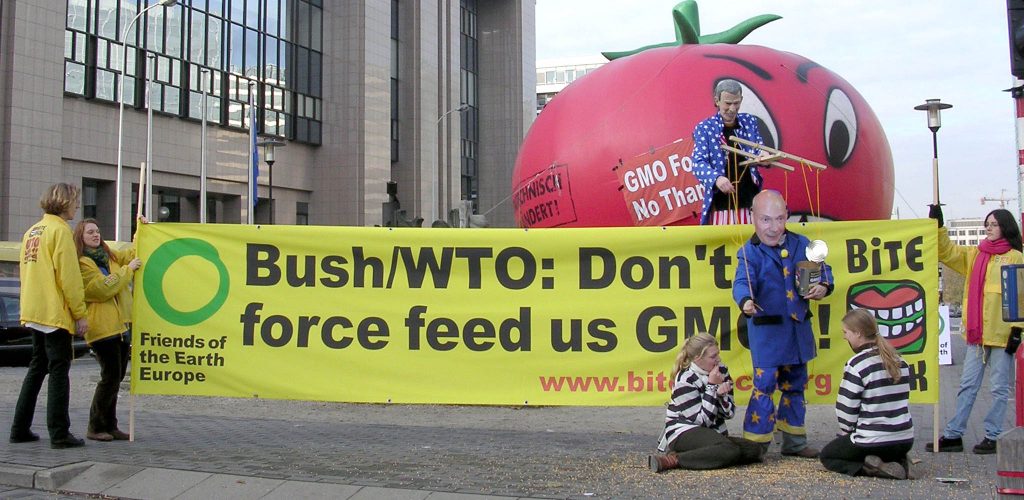Brussels, 18 July 2006 – The European Commission has been ruled guilty of “maladministration” after hiding documents from Friends of the Earth Europe that reveal scientific concerns about the safety of genetically modified (GM) foods. The Commission falsely used the premise that World Trade Organisation (WTO) disputes should involve the secrecy levels of court cases.
The official ruling, of “maladministration” was announced by the European Ombudsman on their website last night. [1] The documents concerned related to the European Communities dispute at the WTO, in which the US, Argentina and Canada claimed that Europe’s precautionary approach on GM foods was a barrier to trade. [2]
Adrian Bebb, GMO foods campaigner for Friends of the Earth Europe said, “Genetically modified foods are a sensitive issue in Europe – most people are totally against them. Keeping papers that discuss their safety secret is a disservice to the public.”
“What we now know is that whilst the European Commission has been telling us for years that biotech foods are safe, they were arguing behind closed doors that there are legitimate scientific concerns that warrant a more precautionary approach,” Mr Bebb added.
The European Commission initially refused to release papers to Friends of the Earth Europe in August 2004, citing that the dispute in the WTO had to be “assimilated” to court proceedings and that the publication of the papers would have damaged their case. The Ombudsman rejected this argument as “not well founded, and hence amounted to an instance of maladministration.” Friends of the Earth Europe argued that the WTO is not a court as disputes are ruled by trade experts who are usually chosen by the parties involved, and not judges. Unlike a court, a WTO dispute is agreed by all 148 member countries and parties can comment on the draft final ruling.
Sonja Meister, Trade Campaigner for Friends of the Earth Europe said, “This is a welcome ruling by the European Ombudsman. There is a culture of secrecy running through the European Commission and the public and groups like Friends of the Earth must fight for every piece of paper to be made public. The Commission can no longer hide behind organisations like the World Trade Organisation but needs to become an open and more transparent body.”
The European Commission eventually released the documents in question in February 2005. The papers outlined scientific concerns about the long term safety of GM foods and crops. Further papers, also released to Friends of the Earth Europe earlier this year, outlined these concerns in more detail, warning that cancer and allergies caused by eating GM foods cannot be ruled out and recommending that GM crops should not be grown until their long-term effects are known. [3]
The WTO has issued a final verdict in the US/European Communities dispute over GM foods but it has not yet been made public. An earlier draft leaked to Friends of the Earth Europe, showed that the WTO was critical of the method used by European countries to ban GM foods but ruled against most of the US’s arguments.
***
Notes
[1] http://www.ombudsman.europa.eu/decision/en/050582.htm [2] In May 2003 the United States, together with Canada and Argentina, made a formal complaint to the World Trade Organisation (WTO) about Europe’s stance on GM foods. [3] See Hidden Uncertainties http://www.foeeurope.org/press/2006/joint_18_April_GMOs.htm [4] Friends of the Earth coordinates an international campaign against the WTO dispute called “Bite-back – WTO: Hands off our food!” – which is supported by 750 organisations representing some 60 million people.






